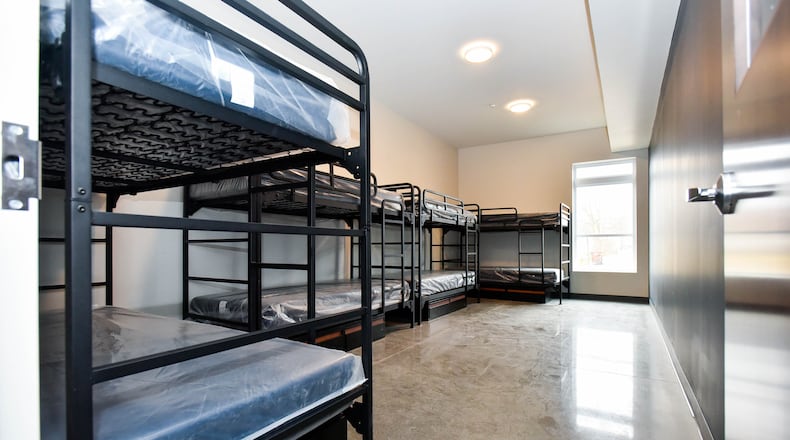Last year, Hope House, formerly a men’s homeless shelter on South Main Street, opened a $11.4 million facility operated by City Gospel Mission at 1001 Grove St.; the city is paying OneCity Recovery $25,000 for a six-month pilot program aimed at working closely with the homeless; and the city gave Downtown Middletown Inc. a $49,724 grant to pay Allied Universal Security Services to provide six months of unarmed security downtown.
During Tuesday night’s city council meeting, members heard from Lindsey Ervin and Victoria Hensley from OneCity, Middletown Police Chief David Birk and Middletown police officer Wayne Birch, who along with police officer Holly Owens, interacts with the homeless weekly.
Hopeline, enabled by OneCity For Recovery, will “actively address the homeless challenge” in Middletown, according to city documents.
Assistant City Manager Susan Cohen has said the social workers can help remove barriers for the homeless, such as obtaining a valid identification, and find them long-term, stable housing. The pilot program would also help them obtain substance abuse treatment.
In the first three months of the program, Ervin said they have built up trust with the homeless population and that has led to some success stories. She said 68 homeless people have been contacted; 25 have been referred to various treatments; and 17 have sought treatment, a 25% success rate, she said.
Also four have been placed in permanent housing.
Those, she said, will not be “back on the streets.”
Hensley said one man living under the Ohio 4 bridge agreed to seek long-term services; and a veteran, his fiancé and their dog, have moved out of a tent into permanent housing.
Birk said the goal of the program is to get the homeless into treatment, if needed, then permanent housing so they can be “productive members of society.”
Vice Mayor Joe Mulligan, who wasn’t re-elected, questioned how council can define the success of the pilot program. He asked how many homeless camps have been dismantled. Birch said the one behind the former Lincoln School on Central Avenue was set to be torn down this week, but that project was delayed by wet weather.
Birch said many of the homeless live in tents on private property so they’re not breaking any laws.
“We can’t arrest them for just being homeless,” he said.
About the Author

